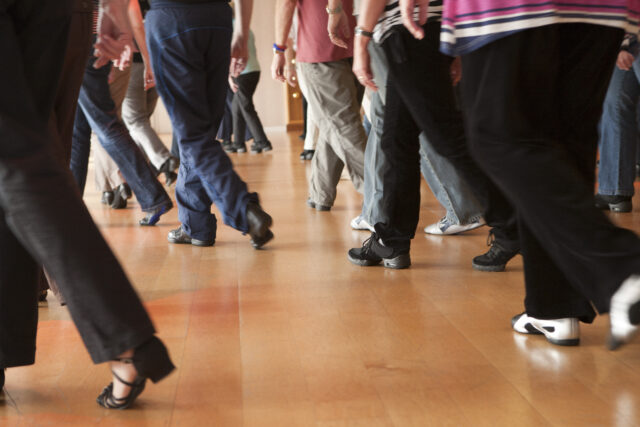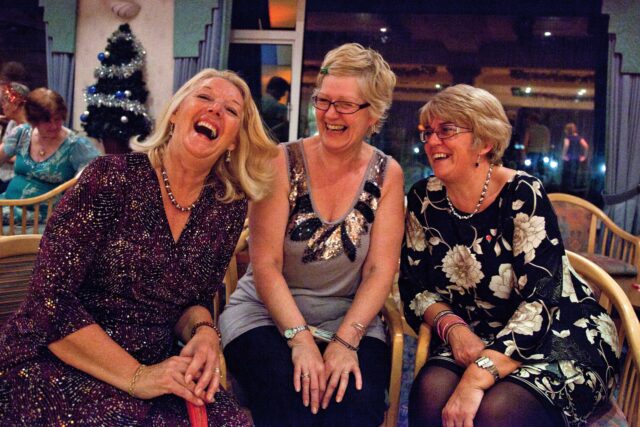Line dancing has a rich and vibrant history that stretches back centuries. Known for its energetic moves and synchronized group formations, this style of dance is enjoyed by people of all ages worldwide. It’s not just a fun social activity; line dancing can also be a great way to stay in shape and improve your fitness. Let’s dive into its fascinating history and explore how it can benefit your body and mind.
The Roots of Line Dancing
Line dancing, in its simplest form, is a dance in which a group of people perform choreographed movements in rows or lines. While many associate it with country music, its origins are far more diverse and complex. Line dancing can trace its roots back to folk dances across Europe and Africa, as well as the social dances of Native American communities. Over time, these different styles melded, evolving into what we now recognize as modern line dancing.
- Early Influences: Traditional folk dances, such as the contra dance from the British Isles and the circle dances from Eastern Europe, have influenced the style and formation of line dancing. In these older dances, people would gather in large groups and perform steps in unison, creating a sense of community and joy.
- The American Evolution: When European settlers came to America, they brought their folk dance traditions with them. These dances eventually mixed with Native American and African rhythms and movements. By the mid-19th century, dancing had become an essential social activity at barn raisings and community gatherings across the U.S. Western settlers popularized what we now know as ‘barn dances’, and this became the foundation of modern line dancing.
- The Urban Revival: In the 1970s, line dancing experienced a resurgence thanks to country music, especially with songs like Achy Breaky Heart by Billy Ray Cyrus in the 1990s. Country Western bars began to host line-dancing nights, where people of all ages could participate. Over time, line dancing became more mainstream, branching out into other music genres, including pop, hip-hop, and Latin music. This diversity has helped keep it relevant and appealing to a broad audience.
Why should you book a line dance break?
Beyond the fun and social aspects, line dancing offers numerous health and fitness benefits. It is a full-body workout that can improve your cardiovascular health, build muscle tone, and enhance coordination — all while you’re having a blast on the dance floor.
1. Cardiovascular Health
Line dancing is an aerobic activity, meaning it elevates your heart rate and improves your cardiovascular system. As you move through the different steps and sequences, your heart works harder to pump blood throughout your body, which strengthens your heart muscles. Dancing for just 30 minutes can burn between 200 and 400 calories, depending on the intensity, making it an excellent option for weight management and cardiovascular fitness.
2. Improves Balance and Coordination
Learning the steps of a line dance requires focus and coordination. The synchronization of footwork, rhythm, and turns helps develop muscle memory and improves your overall sense of balance. These skills can also improve your agility and help prevent falls, making line dancing an ideal activity for older adults.

3. Low-Impact Exercise
For those who want to stay active without putting too much strain on their joints, line dancing is a fantastic low-impact workout. Unlike high-impact sports that can put pressure on knees, hips, and ankles, line dancing is generally gentler, especially if you adjust the intensity to your own fitness level. The constant motion, however, keeps your body engaged and active.
4. Boosts Mental Health
Dancing isn’t just good for your physical health; it can also boost your mental well-being. The combination of exercise, music, and social interaction releases endorphins, the ‘feel-good’ chemicals in your brain. Line dancing helps relieve stress, enhances mood, and can even improve cognitive function. Learning new dance steps and routines challenges the brain, which can help improve memory and focus.

5. Social Interaction
Line dancing is traditionally done in a group setting, which makes it an incredibly social activity. Dancing with others in a synchronized format encourages teamwork and fosters a sense of belonging. It’s a great way to meet new people, build friendships, and feel connected to a community. This aspect of social interaction can also combat loneliness and improve mental health.
Line Dancing breaks at TLH Leisure Resort
Whether you’re an experienced dancer or just starting out, line dancing offers something for everyone. It’s easy to learn, can be adjusted to any fitness level, and provides a full-body workout that doesn’t feel like exercise. So, put on your dancing shoes, find a local class, and get moving—your body and mind will thank you! You can find out all about our Line Dance Breaks on our website. FIND OUT MORE